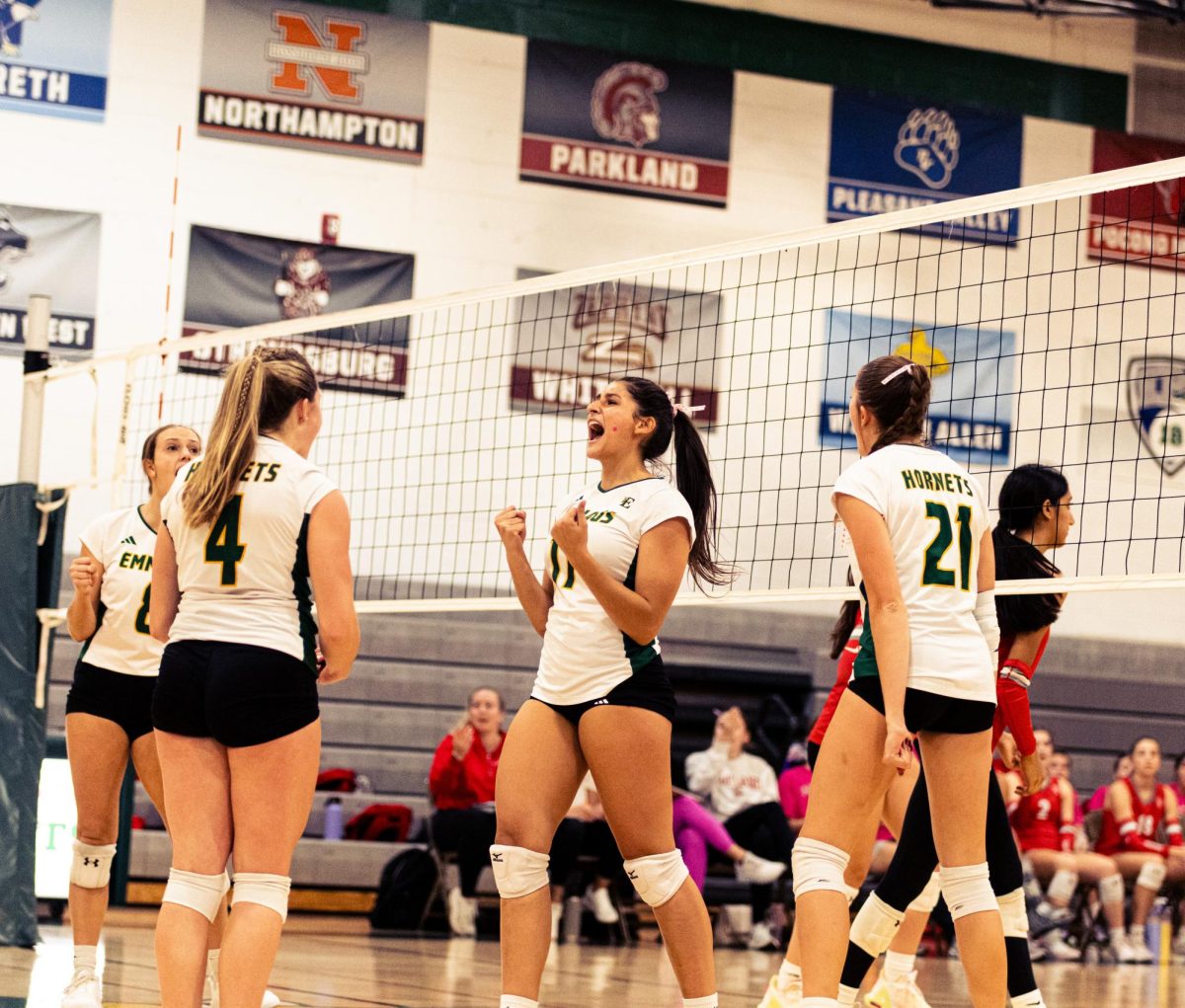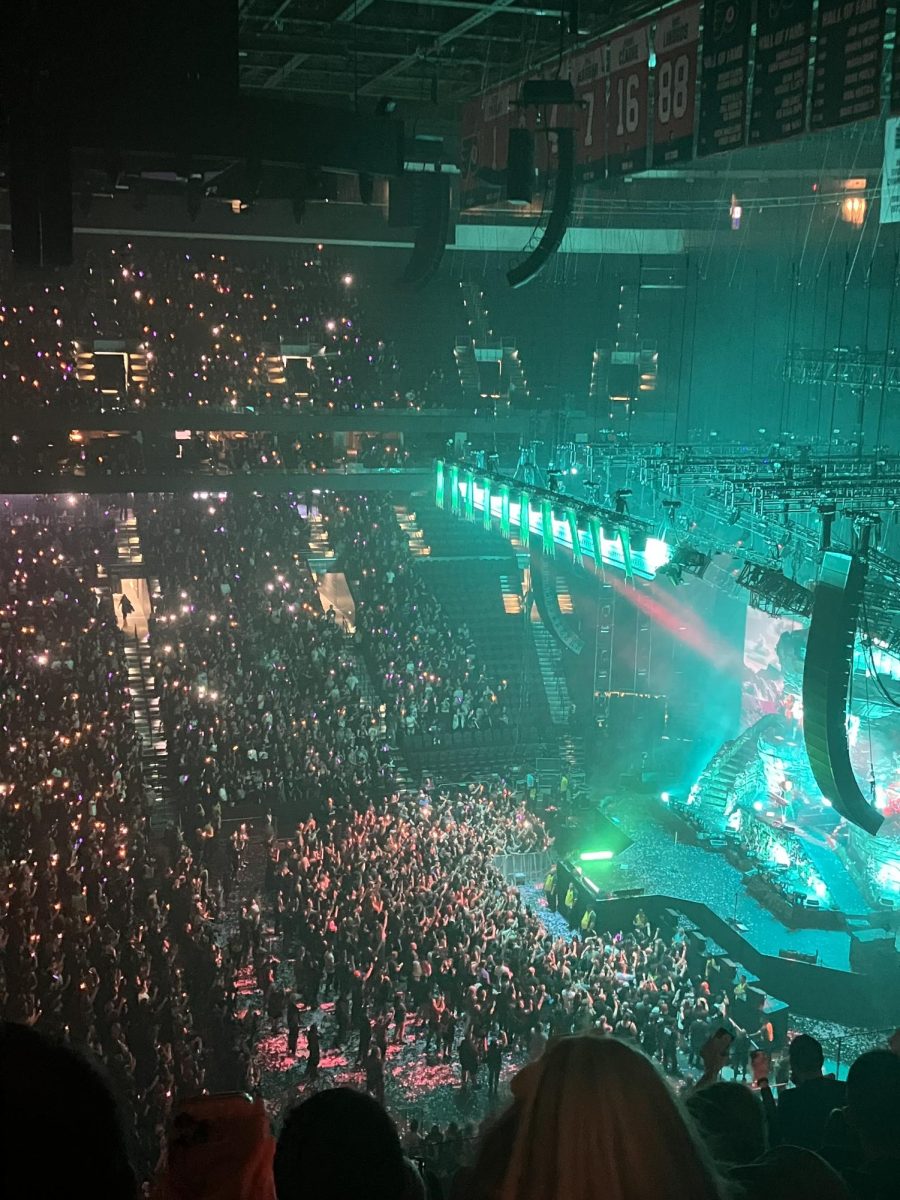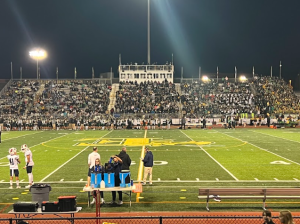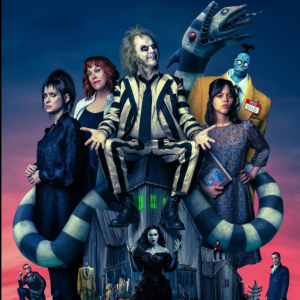Either you love them or you hate them: Two perspectives on holiday movies
Jan 5, 2021
Meliha Anthony
I associate the holidays with candy canes and gingerbread houses, with the streets lit up in a stunning display of excitement. Perhaps the best part of Christmas, though, is the way that society stops to celebrate, making the world appear cozy and beautiful for a few weeks before we retreat back into the dark, dreary, lonesome winter months. Cheesy Christmas romance films seem to be the epitome of this: a wonderful world of escapism where life appears much more simple than it really is.
Under normal circumstances, half the fun of watching any of these movies is keeping a snarky, tongue-in-cheek commentary throughout it. They’re formulaic, the acting is sub-par, the writing presents situations that would absolutely never happen in reality, and the characters are far too cheerful. But, Christmas in 2020 is far from “normal circumstances,” considering the deadly global pandemic that we face. Now, to watch a cheesy Christmas movie with a friend, I have to sit in my garage with the door wide open on a 30-degree day, a space heater at our feet, and a table set up in front of the bike rack on the wall with a TV screen on one side, snacks on the other. Which isn’t to say that it’s any less enjoyable; if anything, the strangeness of the situation makes it all the more memorable and fun. But, my point is, our lives have changed so much this year. We’ve all been through a lot, so if you ask me, a little bit of cozy, Christmas-y escapist cheer is extremely welcome.
I first started watching Christmas romances with my mom when I was young. We would sink into the soft, brown velvet of my grandparents’ couch and settle down with the one movie option we could both wholeheartedly agree on: whichever Christmas special happened to be playing on the Hallmark Channel. Somehow, those experiences made me both a hopeless romantic and a ruthless cynic when it came to romance films. I couldn’t make it through a single film without criticizing it. And yet, even though I knew the movies were highly unrealistic, my heart always broke when the main couple seemed like they might never reconcile after facing an unforgivable obstacle. And I always swooned at the end when the girl inevitably got the guy.
I fell in love with the world of Christmas movies. It’s a world where everybody’s houses are thoroughly decorated both inside and outside and everybody wears red and green, where it’s possible for people to fall in love with one another in the span of just three short days, and where small towns are impossibly cozy — I mean, they are literally called “Snow Falls,” “Santa Claus,” or “Evergreen” (these are real examples, in case you were wondering). Holiday romances take all the best aspects of Christmas and turn them into something bigger and brighter, painting a cheerful, whimsical world where I certainly wish I could live.
There are definitely things that I find problematic about these movies. Namely, the lack of diversity, considering how they all depict upper or middle class white people. I could also take issue with the oversimplified love stories that create unrealistic expectations in the minds of young girls such as myself. Or the fact that these movies make it seem all too easy for regular people to fall in love with royalty — what is it about Christmas that makes screenwriters think of royalty? Needless to say, there are ways that they could improve. But, these stories are a welcome reprieve from the everyday stresses of life, particularly during a year like 2020. Sometimes, all I really need is to turn on the TV and put on the Hallmark Channel or a Netflix original, get a plate of sugary Christmas snacks, wrap myself in a warm blanket, and, the best part of all, spend time with the people that make the world feel like my very own cozy holiday movie: friends and family. That, if you ask me, is what Christmas is all about.
Heather
I have a love-hate relationship with holiday movies. I’m known in my family as “the one who complains every second the Hallmark channel is on, and yet will still be found sitting in her chair at the end.” The reason why? I love my family and my family loves these movies. If suffering through films that set off every “bad writing” alarm I learned in creative writing means I get to spend time with my family, then of course I’ll still be there. And if my friend invites me over to sit in a garage in December to watch them, then you bet I’m saying yes. Will I still complain the entire time? Undoubtedly, but making fun of the cheesy staples of holiday films is just part of the fun.
The most cheesy staples are their clichés. Of course, every movie has them — it’s the reason clichés exist. However, holiday films take it to an entirely new level. From the plot itself, to the locations, to the repetitive events and character archetypes we see in them, they are everywhere. All cheesy holiday movies appear to be essentially the same. If you turn on Hallmark during the holidays, you’ll find that it’s literally the same movie playing over and over again with different titles; even then, they all use some variant of ‘Christmas’ or ‘holiday!’

Let me lay it out for you: it could be a film called “The Holiday Wish,” about a morally questionable lawyer working for a despicable law firm in, god forbid, the city! She takes a trip back to her small hometown and is miserable all the way because she’s a grown woman who hates Santa Claus and the spirit of Christmas. Good news for her, though, because she falls in love with a sweet, sarcastic — but not too sarcastic — employee of a Christmas tree farm and decides to forfeit her entire career to move back home, all within a week. Sound familiar?
Or, it’ll be named “The Sweetest Christmas,” about a small town girl who feels unfulfilled with her life, until her male childhood best friend returns. She’s only just begun to realize her feelings for him when a rich guy appears out of nowhere, creating a classic love triangle scenario. Except it really isn’t a triangle, and more of a straight line with a dot beside it, because we already know she’s going to choose her best friend who is, for some reason, often named Josh. Only then, when she is with a man, will she reach true fulfillment and happiness.
Clichés aren’t all bad, but adding too many of them makes the movie predictable and shows absolutely no complex storytelling. This can especially be seen in this genre’s cheesy, instalove romances that are impossible to root for. Not only are the characters themselves flat, their interactions are disingenuous, and the actors too often have no chemistry. Holiday filmmakers portray relationships as eternally perfect and easy once the main conflict is over, when in reality, they aren’t, setting unrealistic expectations for young, impressionable audience members. These movies also have a tendency to avoid diverse representation, other non-Christian holidays, and those who have dreams outside of a small town life. This screams “unrealistic” in a way that is much more ignorant than a poorly written romance.
Here’s where I personally reach a crossroads. While I hate the idea that such unrealistic expectations could influence a younger audience’s perception, doesn’t everything? All media, from books, to tv shows, to all genres of movies have been influencing, and will continue to influence, our perspective of the world. Does this mean that all fiction should be fixed to match the real world just because some elements of it are “unrealistic?” But is this then enforcing the idea that it’s okay to give people incorrect expectations regarding life, especially since holiday movies are taken as such a normalcy?
I don’t have an answer to that question. But, for me, no matter how fond the memories associated with them may be, these feel-good movies will never truly be worth it if they don’t begin to evolve with the world around them and the growing complexity of media.
Featured photo by Meliha Anthony.













